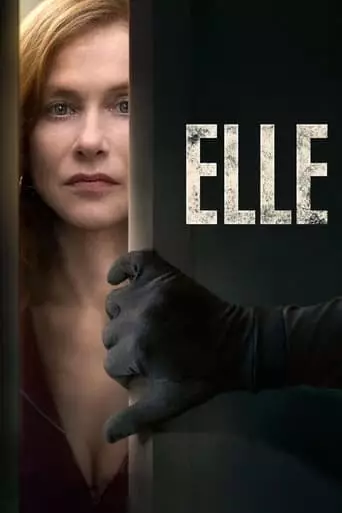
Elle (2016) Watch Online Free
When Michèle, the CEO of a gaming software company, is attacked in her home by an unknown assailant, she refuses to let it alter her precisely ordered life. She manages crises involving family, all the while becoming engaged in a game of cat and mouse with her stalker.
Elle (2016), directed by Paul Verhoeven and starring Isabelle Huppert, is a complex psychological thriller that challenges both the viewer’s emotions and their ethical considerations. Based on the novel Oh… by Philippe Djian, it explores themes of trauma, revenge, and human complexity through its provocative narrative.
The film follows Michèle Leblanc (Huppert), a successful and unflappable CEO of a video game company, who is brutally assaulted in her home by an unknown attacker. Rather than reacting with fear or trauma, Michèle proceeds to live her life with disturbing calm. She avoids involving the police and instead embarks on a tense cat-and-mouse game with her assailant, while grappling with her troubled family dynamics. As the plot unfolds, the film delves into Michèle’s complex psyche, revealing her twisted relationships, repressed desires, and hidden secrets.
Elle stands out for its treatment of sensitive topics such as rape, sexual violence, and the psychological aftermath, presenting them not in a straightforward victimhood narrative but as part of a broader exploration of power, control, and personal agency. Michèle’s lack of visible emotional response to the assault raises questions about the nature of trauma and resilience.
One of the film’s most striking aspects is its ambiguous portrayal of Michèle’s character. She is neither a victim nor a hero in the traditional sense but a deeply flawed and complex woman who manipulates and plays the roles of both victim and perpetrator. Her actions complicate any easy moral judgment, as she engages with her attacker in ways that are as darkly erotic as they are unsettling.
The film also critiques societal norms regarding power and consent, particularly in the realms of family, professional life, and sexual relations. The dynamics within Michèle’s family—her distant relationship with her mother, her estranged relationship with her son, and her affair with a married man—reveal the uncomfortable undercurrents of dysfunction and emotional neglect. These relationships mirror Michèle’s chaotic internal world and the blurred lines between affection and control.
Elle had a significant impact upon its release, especially due to its unflinching exploration of taboo topics. It sparked intense discussions regarding the portrayal of sexual violence, gender roles, and the moral ambiguity of the characters involved. Huppert’s fearless performance as Michèle was widely praised, earning her a Golden Globe and a nomination for an Academy Award for Best Actress. The film’s provocative nature and the ethical dilemmas it raises make it a subject of both admiration and discomfort, pushing boundaries in the realm of contemporary cinema.
Elle is a deeply unsettling experience, and it will likely leave you with mixed emotions. You may feel conflicted or disturbed, especially regarding the film’s handling of trauma and the protagonist’s unconventional response to violence. However, the film also offers a sense of intrigue and admiration for its boldness, complexity, and refusal to adhere to simple moral codes. It may provoke deep reflection on the nature of power, control, and personal agency in situations of extreme stress. Ultimately, you will be left questioning your own ethical boundaries and the consequences of Michèle’s actions, making it a film that lingers long after the credits roll
Elle is not for the faint of heart, but for those who appreciate bold, boundary-pushing cinema, it is a must-watch that will stay with you.
